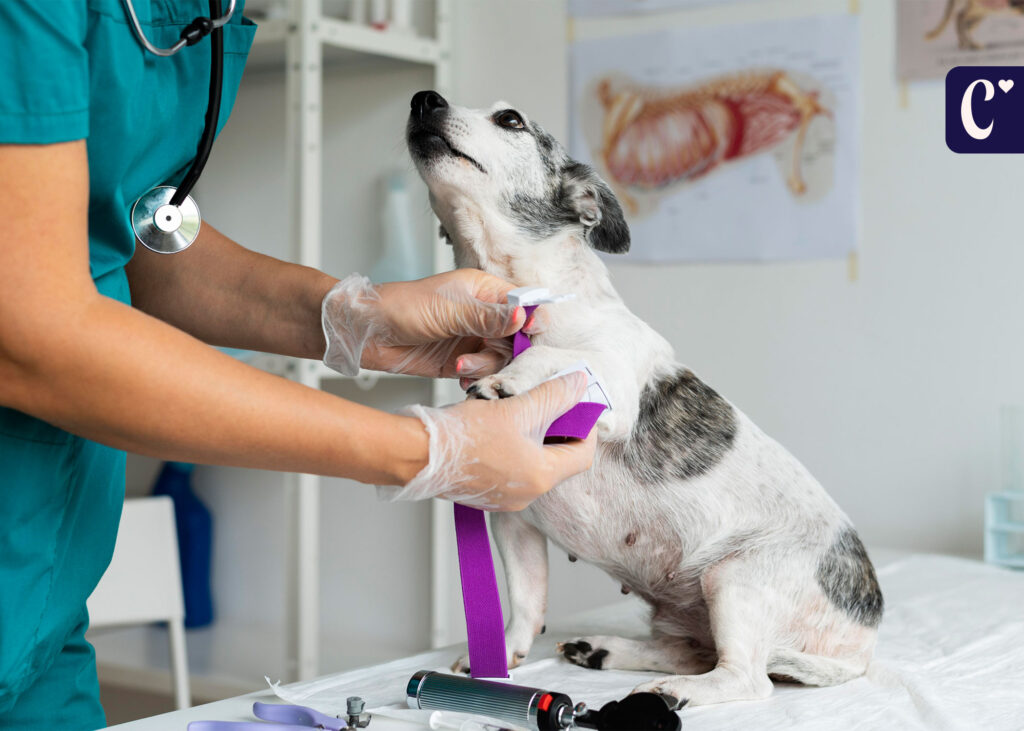Ensuring the well-being of a beloved pet is a crucial aspect of responsible ownership and in this process, collaborating with a veterinarian is key to managing the health of a companion animal successfully. While routine check-ups are vital, visits to the vet can evoke anxiety, just like the discomfort associated with dental appointments. The stress experienced by our valued family members during these visits underscores the need for a strategic approach. Despite the common comparison to unease experience, there is an extensive list of practical tips that you can follow to turn a veterinarian visit into a positive experience for your beloved companion.

How to Prepare a Canine Companion for a Visit to the Vet?
1. Early Socialization
A fear of meeting the vet can stem from a lack of interaction with unfamiliar people. Even if your pet is usually well-behaved, being in a strange environment surrounded by unknown faces might trigger unexpected behavior. Early socialization is key to preventing this issue. We advise you to introduce your pet to new people regularly to build trust and adaptability. Exposing them to different environments will unquestionably foster a more social mindset. This early development is sure to benefit your beloved companion during vet visits and help them feel more at ease. By fostering positive interactions with strangers from an early age, you set the foundation for a less stressful experience at the vet.
2. Prevention of Behavioral Problems
Even if your canine companion feels great, as a competent parent, you need to understand the importance of routine check-ups to perfectly assess your dog’s health conditions. In light of this, it is advisable to walk your loyal friend a few hours before the visit to the vet. Physical activity will help the dog to expend excess energy and create a positive mood. Energy spent on favorite activities makes the dog feel calmer. This will significantly reduce the probability of behavioral problems identified by the veterinarian.
It’s conventional wisdom that even with proper training, there is a chance that your beloved friend’s instincts will overpower his good manners and become aggressive towards the vet. However, be mindful of this situation and remember that this is a natural defense mechanism that manifests itself unconsciously under high-stress conditions.
3. Mood Theory
Our beloved companions know us better than we realize. Even observing our body language is enough for them to sense our stress or anxiety. It’s conventional wisdom that dogs are sensory creatures and that’s exactly why their behavior is often determined by our attitude towards the situation. If we manage to stay calm during the vet visit, our valued family members will similarly share our commitment.
If your loyal companion has a previous unpleasant experience related to the vet, you may find it difficult to manage his temper. However, do not worry – nothing is impossible! You will unquestionably be able to dispel pre-formed negative attitudes by performing simulated medical procedures specially planned for your canine companion.
Start with gentle examinations of the ears, limbs, and mouth, and eventually progress to medical procedures such as listening to the lungs and heart with a stethoscope. Soon, these routine activities you perform at home will become such a regular experience for your valued family member that visiting the veterinary clinic will no longer be a problem. In this process, don’t forget to reinforce the positive behavior of your beloved friend with positive associations and reward him with his favorite treats.
How to make our companion animal feel comfortable?
As usual, dogs visit the veterinarian only when they feel sick or need another session of vaccinations. That is why it is quite natural that it doesn’t take much time for them to form a negative perception of the veterinary clinic. But have you ever wondered what happens if you take your canine to the vet just for fun? In this case, a visit to a veterinary clinic will no longer be associated with a negative experience. The kindness shown by the staff and the delicious treats served by them will surely impress your valued family members.
Ask your vet if they can manage to meet and get to know your beloved companion. We are sure that understanding the reason for your visit will fill it with the same positivity that fills the hearts of you and your dear companion.
If the vet will form a friendship with your dog, the next visit planned for the genuine purpose of inspection will no longer be a concern. But still, just in case, to ensure the best experience, we recommend that you bring your canine friend’s favorite toy with you during your visit. A positive association with familiar things can help your valued family member unwind emotionally and feel at ease.
Final Thoughts
As you can see, building positive associations with vet visits requires a hands-on, enthusiastic, and dedicated approach. So, take time to acclimate your beloved companion gradually and employ treats and affection. With consistent efforts, you will manage to transform routine veterinarian trips into enjoyable moments, but remember that patience and positive reinforcement go a long way in creating a stress-free experience that benefits both you and your loyal companion.
